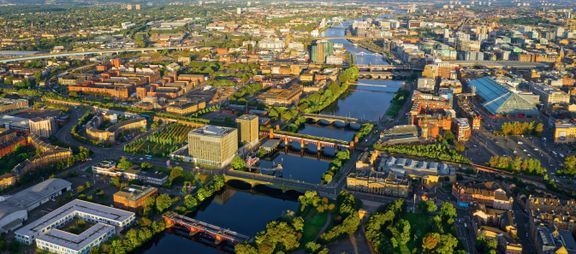
The UK's New Immigration System: What it means for EU
25/02/2020

On February 19th, 2020, current Home Secretary Priti Patel announced detailed plans for the UK’s new points-based immigration system.
This new system will look to create a single, global system for all applicants seeking entry into the UK and will significantly affect working visas alongside several other current routes into the country.
Most notably, many EU citizens who have not previously needed to apply for visas to enter the UK will need to do so once these changes come into effect.
White Rose Visas are ready to assist anyone affected by these changes, and have outlined the key changes proposed by the Home Secretary. The following article considers what the new system means for those looking to come to the UK to live, work, visit and study in the future.
This new immigration system is set to begin on January 1st, 2021, after the UK’s Brexit transition period ends.
What if I am an EU citizen?
The most significant difference in the new immigration system is that it has been designed to treat EU and non-EU citizens equally.
This means that if you are an EU citizen, you will no longer be able to come to the UK to live and work without a visa from January 1st 2021.
If you are already resident in the UK, or become resident before 31st December 2020, you must apply to the EU Settlement Scheme.
This will allow you to obtain settled or pre-settled status in the UK, including the legal right to live and work in the country. The deadline for applying for the EU Settlement Scheme is 30th June 2021.
If you do not hold settled or pre-settled status in the UK by the time the deadline ends, then even though you are an EU citizen you will no longer automatically have the legal right to live and work in the UK.
This means that over 500 million people currently living in the EU must go through UK visa application processes after 2021 if they wish to come to the country to work or settle.
How can I employ EU workers after January 2021?
Working visas, known currently as Tier 2 and Tier 5, are set to be the most affected by these new rules. Similar to the current process, the new system requires applicants to meet certain criteria to earn points, with those earning over 70 points eligible for working visas.
Under the new system points will be offered for sponsored job offers, meeting the English Language requirement and receiving a high enough salary, similar to current Tier 2 requirements. This means that the current Sponsor Licensing system for hiring migrant workers will remain the same in 2021. Any employer who anticipates the need to employ workers from the EEA from 2021 should consider making an application to become a Licenced Sponsor well ahead of time.
The minimum salary threshold for all skilled workers will however be lowered from £30,000 to £25,600, based on the Migration Advisory Council’s recent recommendations. Some roles on the shortage occupation list, such as nurses and civil engineering positions, could have salary thresholds as low as £20,480.
The government plans to remove the current cap on the amount of skilled workers able to come to the UK each year, in an effort to encourage as many skilled workers as possible to come to the country.
They will also be lowering the skills cap, which means that education to the equivalent of UK A-levels will sometimes be acceptable instead of the applicant needing to have a university degree.
These changes will make the UK slightly more accessible for those with skilled job offers, but there are concerns that prioritising these jobs over positions viewed as low-skilled will cause serious problems for the UK.

What is the difference between a skilled worker and a low-skilled worker?
The Home Office is promising an end to low-skilled workers coming to the country from abroad, as their new points-based-system prioritises qualifications and salary levels for hopeful UK employees.
To better understand this, the difference between skilled and low-skilled workers must be explained.
To assess job opportunities for those looking to work in the UK, a system known as the Standard Occupational Classification (SOC) is used.
This system structures jobs based on the level of education, training and experience that is required to perform them.
For example, a university professor usually requires a relevant PhD to receive their job offer, so their job is treated as skilled work.
Low-skilled work is defined by the Home Office as a position that doesn’t require a high level of education or experience to fulfil.
In immigration terms, if the job is not found on the list of skilled work then you are unable to obtain a working visa for the position. Some examples of low-skilled work after 2021 will include waiters, certain farm and fishery workers, cleaners, social care workers and retail staff.
There will be no option for these employees to come to the UK from the EU once the rules change.
To add to this, there are specific worries that skilled positions such as NHS Physiotherapists and Radiographers have a starting salary of £24,200, lower than the minimum required amount. This has caused huge concern as positions like these are likely to be inaccessible for EU citizens in 2021, despite there being few UK residents trained for these jobs.
Are there any other options for EU workers?
There will be some additional options and exemptions for skilled workers, though they are very limited.
If you are offered work in a skilled job that is beneath the £25,600 minimum salary amount and also not on the shortage occupation list, then you may be able to ‘trade’ points earned from other criteria in exchange for points earned for this salary.
Typically, this would be if you have achieved a PhD relevant to the sponsored position. As such, though this will be an option for some who have been offered a lower salary than the minimum, this exemption will likely occur only in very specific cases.
The Home Office also recently launched the new Global Talent visa on February 20th 2020, replacing the former Tier 1 Exceptional Talent route. This new route will allow those of extraordinary talent in their respective field to come to the UK without a job offer, and will be fully open to applications from EU citizens. It has been designed to attract world-leading scientists, researchers and artists.
This route will, however, be very exclusive to applicants who can obtain endorsement, based on extensive evidence that they are either a recognised or emerging leader in their field.
For low-skilled workers there is a single, extremely limited option in the form of seasonal agricultural schemes.
A pilot scheme for seasonal workers in the agriculture sector is currently being trialled for 2020s harvest, and has expanded to allow up to 10,000 workers to enter the UK during this period, but it is unclear yet whether opportunities for seasonal workers will continue in 2021.
Beyond this uncertain option, there will be no immigration route allowing low-skilled workers from any country to enter and work in the UK.
It is also worth noting that there will be no route for self-employed individuals to come to the UK and work for themselves. They would instead need to establish their business in the UK through the Innovator or Start-up visa, or find direct, sponsored employment at an appropriate salary to apply for a work visa.

Will these changes affect EU students?
From 2021 any prospective students from the EU hoping to come to the UK will need to apply for a Tier 4 visa, the same as those from non-EU countries.
The requirements for this visa will remain the same for all applicants. This means that in the future anyone looking to study in the UK, either from an EU or non-EU country, must have already received an offer from a Higher Education Institution and must meet both a financial and English Language requirement.
Once they have graduated, EU citizens will likely need to find alternative visas to remain in the UK after their studies. Some visa options for recent graduates include applying for a Tier 2 working visa if they are able to find work in the UK, or applying for a Start-up visa if they wish to start a business in the country.
The Home Office has not yet indicated any plan to include EU countries in its current Youth Mobility Scheme.
Will these changes affect my right as an EU citizen to visit the UK?
If EU citizens wish to visit the UK in the future for tourism or related purposes, they will be able to do so for up to 6 months without a visa.
However, the Home Office also states they will be phasing out identity cards and that they will announce their more detailed plans for how EU citizens can travel to the UK at a later date. We will continue to monitor this and provide suitable updates on the rights of EU citizens to visit the UK as soon as they become available.
What do these changes mean for the future of UK immigration?
This means that from 2021 there will be millions more people who will need to apply for visas if they wish to live and work in the UK.
Home Secretary Priti Patel has stated that overall migration numbers will be brought down by these changes, showing that the UK is actively making entry harder for people hoping to make the country their future home.
These are radical changes to what EU citizens have grown accustomed to in relation to UK immigration and will make their ability to live and work in the UK much more complicated from 2021, particularly for those who hope to work in certain sectors.
If you are confused or concerned at all by these proposed changes, or are unsure how you or your future plans could be impacted by them, we would urge you to contact us directly so that one of our experienced immigration advisers can assist you.
For any further reading on the new 2021 system, please see the gov.uk announcement page and the specific gov.uk help page for the new system.
We will continue to remain up-to-date with these plans as they are announced and will ensure to appropriately inform all our clients as we are able.
Related Posts
What UK Immigration Routes Will There Be After Brexit?

On July 13th 2020 the UK Home Office released a further detailed statement regarding the future of UK...
Can you travel outside the UK after submitting a visa application?

A frequent question we are asked by our clients and enquirers here at White Rose Visas is whether...
What are the Absence Limits for Settlement?

The goal for many people moving to the UK is to ultimately gain settled status, otherwise known as...







